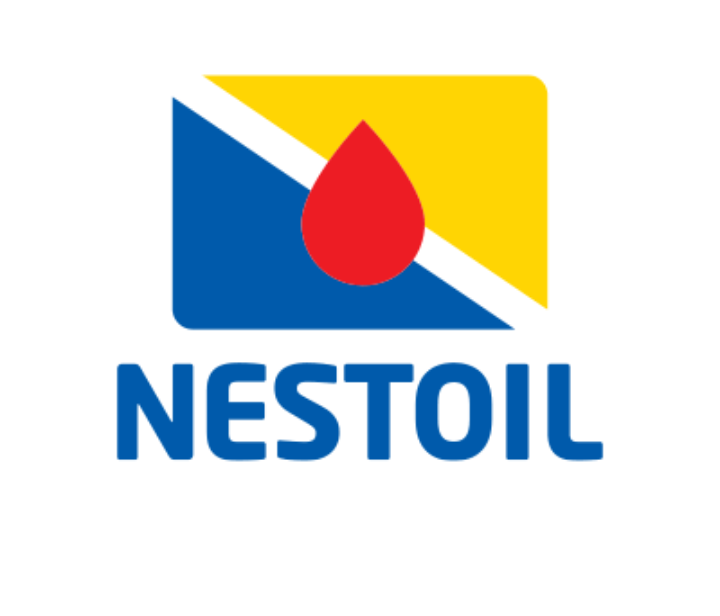Nigeria News
Local content-buoyed oil companies see expansion amid capacity growth

Indigenous oil companies are not resting on their oars to validate the success of the local content act as they seek further expansion into all areas in the sector through the growth in their capacity reports.
Witnessing the various projects being undertaken by the fast-growing number of indigenous oil and gas companies in the country might have been an illusion some decades ago. But with the success of the Nigerian local content act, more companies, now key players in the sector, are looking to grow their participation as a result of the growth in their capacity and expertise.
The Nigerian oil and gas space has seen astronomical growth of local players buoyed by the various initiatives of the Federal government and the Nigerian Content and Development Monitoring Board (NCDMB), the watchdog, in ensuring that the International Oil Companies (IOC’s) do not impede local capacity development by infringing on any of the local content acts.
The Nigerian Oil and Gas Industry Content Development, known as the Local Content Act, 2010 was enacted to promote indigeneous participation in the nation’s oil and gas industry to improve the economic and social welfare of those operating in the oil and gas industry through value retention.
It came into being as a result of the complaints from local energy players on the IOC’s domination of the sector. About 90 percent of the equipment and personnel used in the industry were imported.
The Act specifies that the Nigerian independent operators should be accorded first consideration in the award of Oil and Gas related contracts and that the Nigerian service companies should also be given exclusive consideration for contracts and services. This is to aid the systematic development of capacity and capabilities through the usage of local human and material resources for services in the sector.
The success of the local content policy is why the Nestoil Group is a known name in the Nigerian business environment as its impacts in the sector with record time projects execution and quality of work done are pivotal to the growth of the national economy.
Nestoil, with Group Managing Director/President, Dr. Ernest Azudialu Obiejesi at the helm, before the 2010 Act, had envisaged that a time will come when the various issues militating against local players participation in the oil and gas sector will be addressed. It thus, positioned itself, through sister companies, dubbed Strategic Business Units (SBUs) as demanded by prevailing circumstances, to service end-to-end activities of the sector.
The activities of Nestoil and its subsidiaries like Energy Works Technologies (EWT), IMPaC, B&Q Dredging, Hammakopp Consortium, Scorpio Drilling, Neconde Energy, Nesthak, Shipside Drydock, Gobowen E&P, and Century Power Generation Limited – in the energy ecosystem has led observers to call it the local content success story.
The various well-equipped SBU’s, fuelled by the local content act, were created at different fora during the evolution of the oil and gas sector, according to Azudialu-Obiejesi, upon the identification of insightful business opportunities from needs that did not have readily available or sufficient in-country solutions.
On the company’s website, he said the SBUs were initially created to provide for critical needs that arose during Nestoil’s execution of various pipeline construction projects it got from local and foreign partners. These companies, presently, he enthused have been expanded and have become authorities in their fields.
Nestoil and SBU’s Value to the Nigerian Economy
Through the execution of various projects, the expertise and technical know-how of Nestoil and its staff have greatly improved that it is trusted by IOC’s and local partners to deliver on its mandate, no matter the tough terrain where the projects are located.
Its level of success today can be tied to the determination of its founder, Azudialu – Obiejesi, even before the passage of the Local Content Act, to have business entities that would be wholly Nigerian to compete with the IOCs. The predicator to this was to allow Nigerians to participate and be major players in the sector.
For B & Q Dredging Limited, like other subsidiaries whose core is to support the activities of the company as a whole, the experience garnered from the completion of various projects, delivered when a sect in the sector is skeptical of local capacity, made it stood up to be counted as a success story.
The successful completion of Shell’s mammoth 97-kilometre NCTL pipeline in 2010, delivered a month before schedule, turned out to be the ice-breaker for B&Q as that led to the opening of doors to other indigenous companies.
Previously known as Baseman and Quality Services, it is a wholly indigenous Nigerian company, providing all facets of dredging & marine logistics services. It has over the years acquired the assets of Julius Berger dredging department and as a result of this acquisition, it has repositioned itself as the foremost indigenous dredging and marine logistics company in Nigeria. It also owns the largest dredging and marine logistic fleet in Nigeria.
Its expertise and leading role in the dredging and construction sector made the Federal Government award it a contract to play a part in the construction process of the 2nd Niger River. The bridge is one of the most important infrastructure projects to connect the most economically active regions of Nigeria and the scope of work includes the construction of a 1.6km long bridge, 10.3km highway, Owerri interchange, and a toll station.
Haven been described as a key national infrastructure; with immense socio-economic benefits for the contiguous states in Nigeria, B & Q went all out for the latest invention that will make it finish it lot on time. It got Pirat-X Dredger; a perfect and powerful partner in all major coastal hydraulic engineering projects – from harbor construction to offshore trenching for Oil and Gas projects; and dredging navigable channels to reclaiming beaches, to let Nigerians know its readiness to be the local content leader in the sector.
Pirat-X can dredge and transport up to 1,120m3 soil water mixture per hour over a distance of 4.8km. It is equipped with a Christmas Tree arrangement, which enables it to work in offshore facilities and platforms, reduces the operational time frame which leads to reduced cost.
It has a great advantage for large land reclamations, long-range sand delivery, and offshore trenching and dredging in the field is continuously monitored and evaluated with underwater viewing equipment in combination with a DGPS system and mixture density and speed measuring system.
Pirat-X has also been slated for the execution of the N14.4 billion-100-hectares Phase 2 Elegushi land reclamation project.
Another key subsidiary is Energy Work Technologies (EWT) created in 2012 out of the company’s engineering exigencies, to support the group in heavy industry fabrications and engineering, especially building vessels.
According to the Business Development and Operations Manager, Mr. Chris Ijeli, if a count is taken of what EWT has done in comparison to when it started operations, it has gone far ahead of other fabricating companies.
The EWT services range from pressure vessels and piping, process packages and modules, and offshore steel structures.
Ijeli said EWT represents yet another breakthrough in fabrication technology in the country. EWT is the foremost pressure vessels, process equipment manufacturer, steel structures fabricator, and EPCI service provider in Nigeria and West Africa region, serving the Oil & Gas as well non-Oil & Gas sectors. EWT capabilities include a full range of fabrication services for certified process packages and steel structures.
“EWT is an ISO-9002015 certified company, certified manufacturer of pressure vessels, process modules, process plant equipment, and oil and gas steel structures fabricators in Nigeria and West Africa. We are the fabrication yard among the first companies to transit from 2008 to 2015,” ijeli asserted.
With the help of IMPaC, another strategic unit of Nestoil, EWT has a good engineering and operational maintenance capability.
Nestoil prides itself as the foremost indigenous company in the business of pipeline laying, repairs, and maintenance and has been a significant contributor to the industry since its inception in 1991.
It continues to redefine industry standards in pipeline construction, repairs, and maintenance with associated facilities for Dredging, River Crossing, and Shoreline Protection.
The company contributes significantly to the growth and development of local capacity through the utilisation of young Nigerian professionals, who made up the bulk of the project teams, as well as sourcing some of their personnel from the host communities. This is an area where most local companies have more advantage over the IOCs as they can relate better with the locals.
In recognition of its capabilities in the industry value chain, three of the groups’ companies, Nestoil, EWT, and B&Q were in 2017 identified by the London Stock Exchange (LSE) out of 300 African companies as companies with a great future for the continent – companies to lead Africa in the next 10 years.















